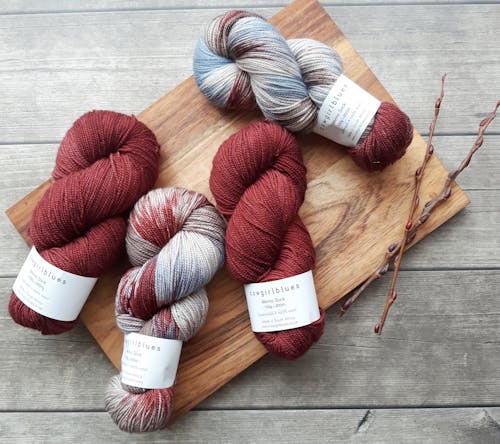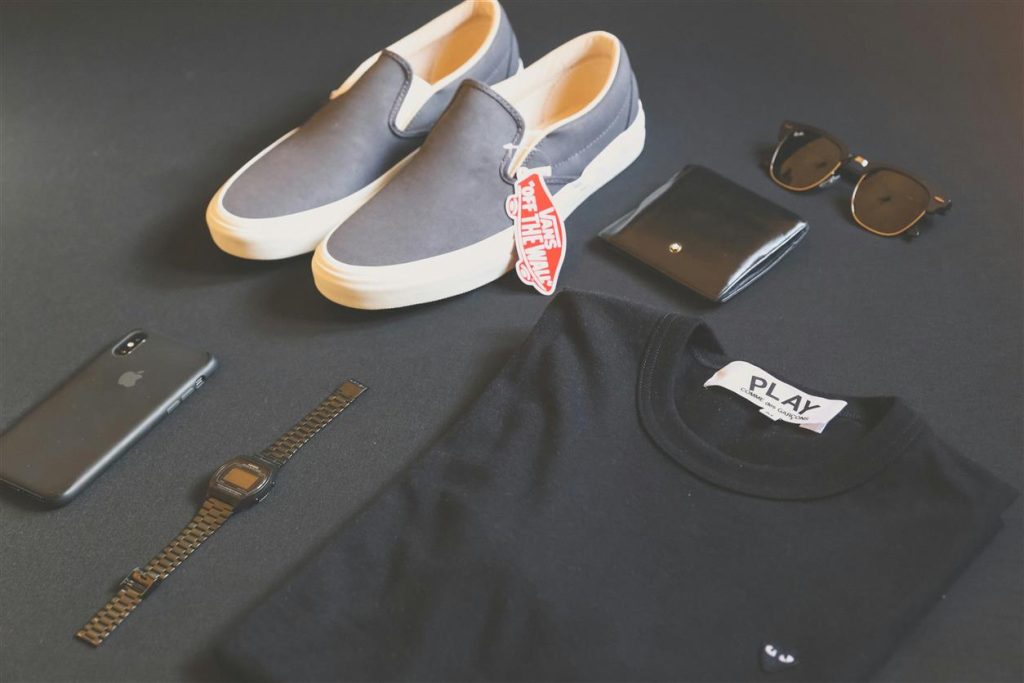
Sustainable fashion has transformed from a niche concept into a mainstream movement, driven by increasing environmental awareness and consumer demand for ethical practices. This evolution reflects a growing recognition of the fashion industry’s impact on the planet and a collective effort to mitigate that impact. In this essay, we will explore the journey of sustainable fashion, highlighting the key milestones in its evolution and introducing notable eco-friendly brands that are leading the way in this critical movement.
Understanding Sustainable Fashion
Before delving into the evolution and the brands making a difference, it’s important to understand what sustainable fashion encompasses. Sustainable fashion, often referred to as eco-fashion, focuses on creating clothing and accessories with minimal environmental impact. This involves considering various aspects of the fashion lifecycle, including:
- Materials: Using eco-friendly materials such as organic cotton, recycled fabrics, and innovative alternatives like mushroom leather.
- Production: Implementing ethical labor practices, reducing waste, and minimizing the carbon footprint.
- Design: Creating timeless, high-quality pieces that are designed to last and reduce the need for fast fashion.
- End of Life: Ensuring that products are biodegradable, recyclable, or can be repurposed to avoid landfill waste.
The Evolution of Sustainable Fashion
The evolution of sustainable fashion can be traced through several key phases, each marked by significant changes in consumer awareness, technological advancements, and industry practices.
Early Beginnings: The Roots of Eco-Fashion
Sustainable fashion’s roots can be traced back to the early 20th century, with pioneers like Stella McCartney and the organic cotton movement. However, it wasn’t until the 1960s and 1970s that the concept began gaining traction, driven by the broader environmental and social movements of the time.
- 1960s-1970s: The environmental movement began raising awareness about pollution and waste, setting the stage for eco-conscious fashion. Designers like Vivienne Westwood and brands such as Patagonia started to incorporate sustainable practices into their work.
The Rise of Eco-Friendly Brands: 1980s-2000s
The 1980s and 1990s saw the emergence of eco-friendly brands and the establishment of formal sustainable fashion initiatives. During this period, the fashion industry began to recognize the need for change, leading to the development of new materials and practices.
- 1980s: The concept of sustainable fashion began to formalize with the rise of eco-friendly brands. Patagonia, for example, committed to using recycled materials and promoting environmental activism.
- 1990s: The publication of “Fashioning the Future” by the Ethical Fashion Forum and the introduction of eco-certifications like the Global Organic Textile Standard (GOTS) helped set industry standards and promote sustainable practices.
Mainstream Integration: 2000s-Present
The 2000s marked a significant shift as sustainable fashion moved from the periphery to the mainstream. This period saw the proliferation of eco-friendly brands, increased consumer awareness, and greater collaboration between designers and environmental organizations.
- 2000s: The establishment of organizations like the Sustainable Apparel Coalition and the rise of fashion weeks dedicated to sustainability (e.g., Copenhagen Fashion Week) brought more attention to eco-friendly practices.
- 2010s-Present: The movement gained momentum with major fashion houses and high-street brands adopting sustainable practices. Concepts such as circular fashion, zero-waste design, and digital fashion have further pushed the boundaries of sustainability.
Eco-Friendly Brands to Know
Several brands have emerged as leaders in sustainable fashion, each contributing to the movement through innovative practices, ethical production, and eco-friendly materials. Here are some notable eco-friendly brands making a significant impact:
Patagonia
Patagonia is a pioneer in sustainable fashion, known for its commitment to environmental activism and ethical practices.
- Materials: Patagonia uses recycled polyester, organic cotton, and other eco-friendly materials in its products.
- Practices: The brand is known for its transparency, offering repair services to extend the life of its products and promoting the “Worn Wear” program, which encourages customers to buy used items.
- Initiatives: Patagonia actively supports environmental causes and donates a percentage of its profits to environmental organizations.
Stella McCartney
Stella McCartney has been at the forefront of sustainable fashion in the luxury sector, advocating for the use of sustainable materials and ethical practices.
- Materials: The brand uses organic cotton, recycled fabrics, and innovative materials like mushroom leather and faux fur.
- Practices: Stella McCartney’s supply chain is transparent, and the brand focuses on reducing waste through a zero-waste design approach.
- Initiatives: The brand is involved in various sustainability initiatives, including partnerships with organizations like the Ellen MacArthur Foundation to promote circular fashion.
Reformation
Reformation is a fashion brand that combines sustainability with trendy, high-fashion designs.
- Materials: Reformation uses sustainable materials such as Tencel, recycled polyester, and organic cotton.
- Practices: The brand is known for its eco-friendly manufacturing processes and transparency in its supply chain.
- Initiatives: Reformation is committed to reducing its carbon footprint and promoting ethical labor practices.
Veja
Veja is a sneaker brand that has made a name for itself with its commitment to sustainability and ethical production.
- Materials: Veja uses organic cotton, wild rubber from the Amazon, and recycled materials in its sneakers.
- Practices: The brand works directly with small-scale producers and cooperatives, ensuring fair wages and environmentally friendly practices.
- Initiatives: Veja is dedicated to transparency and regularly publishes its environmental and social impact reports.
Toms
Toms is known for its socially responsible business model, which extends beyond sustainability to include social impact.
- Materials: Toms uses sustainable materials such as organic cotton and recycled polyester in its footwear.
- Practices: The brand’s “One for One” model donates a pair of shoes for every pair sold, and Toms is involved in various social initiatives.
- Initiatives: Toms focuses on improving lives through giving, with projects that support mental health, clean water access, and safe birth.
Allbirds
Allbirds is a footwear brand that emphasizes sustainability and comfort.
- Materials: The brand uses renewable materials like merino wool, eucalyptus tree fiber, and sugarcane in its products.
- Practices: Allbirds is committed to reducing its carbon footprint and uses a carbon calculator to track and offset its emissions.
- Initiatives: The brand actively seeks ways to improve its sustainability efforts and engages in partnerships to advance environmental causes.
Eileen Fisher
Eileen Fisher is a fashion brand known for its dedication to sustainability and ethical production.
- Materials: The brand uses organic cotton, recycled materials, and natural fibers in its collections.
- Practices: Eileen Fisher implements a take-back program to recycle old clothing and promotes fair labor practices throughout its supply chain.
- Initiatives: The brand focuses on creating a circular fashion system and is involved in various sustainability initiatives, including partnerships with environmental organizations.
Nudie Jeans
Nudie Jeans is a denim brand that combines sustainability with a commitment to quality and transparency.
- Materials: The brand uses organic cotton and recycled denim in its products.
- Practices: Nudie Jeans offers free repairs for its jeans and encourages customers to extend the life of their clothing.
- Initiatives: The brand is dedicated to ethical production and transparency, regularly publishing sustainability reports and engaging in various environmental projects.
KnowledgeCotton Apparel
KnowledgeCotton Apparel is a Danish brand that emphasizes sustainability and ethical practices.
- Materials: The brand uses organic cotton, recycled materials, and eco-friendly dyes.
- Practices: KnowledgeCotton Apparel focuses on reducing its environmental impact through sustainable production processes and ethical labor practices.
- Initiatives: The brand is committed to transparency and regularly updates its customers on its sustainability efforts and progress.
Girlfriend Collective
Girlfriend Collective is an activewear brand known for its commitment to sustainability and inclusivity.
- Materials: The brand uses recycled materials, including plastic bottles and discarded fishing nets, in its activewear.
- Practices: Girlfriend Collective focuses on ethical production and transparency in its supply chain.
- Initiatives: The brand is dedicated to inclusivity and offers a wide range of sizes, promoting body positivity and diverse representation.
Challenges and Future Directions
While the growth of sustainable fashion is encouraging, the industry still faces several challenges. These include:
- Scalability: Many sustainable practices and materials are still not widely adopted, and scaling them to meet global demand remains a challenge.
- Cost: Sustainable fashion often comes with a higher price tag, which can be a barrier for some consumers.
- Transparency: Ensuring transparency throughout the supply chain and verifying the authenticity of sustainability claims are ongoing challenges.
The future of sustainable fashion will likely involve continued innovation, increased collaboration between brands and organizations, and a greater emphasis on circular fashion. Advancements in technology and materials, along with evolving consumer attitudes, will play a crucial role in shaping the next phase of this movement.

The evolution of sustainable fashion reflects a growing awareness of the fashion industry’s impact on the environment and a collective effort to promote more ethical practices. From its early beginnings to its current mainstream status, sustainable fashion has come a long way, with numerous eco-friendly brands leading the charge. By supporting these brands and embracing sustainable practices, consumers can contribute to a more ethical and environmentally friendly fashion industry. The journey towards sustainability is ongoing, but the progress made so far is a promising sign of a more conscious and responsible fashion future.



